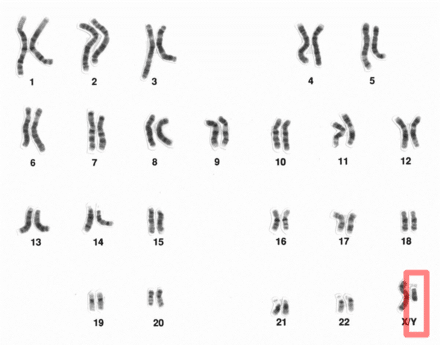Does Adding Genetic Risk to Clinical Score Improve Prediction of Coronary Artery Disease?
Loss of Genes on Y Chromosome Can Predispose Men to Cancer
Education: Reducing Social Inequities Unintentionally Heightens Importance of Genetics
Overlapping Genetic Loci Between BMI and Mental Health Disorders
New York State Clinical Laboratory Program Approves +RNAinsight™ To Enhance Genetic Testing for Hereditary Cancers
DNA Variants Predictive of Autism in Siblings
Pairing RNA with DNA Genetic Testing Improves Risk Assessment for Hereditary Cancers


Association Between Polygenic Risk Score and Risk of Myopia


Hunt For Cause of New Genetic Brain Disorder in Young Children
Disruption of Intestinal Clock Genes May Be Associated with Obesity and Inflammatory Disorders
Study Finds Multigene Testing For All Women With Breast Cancer Can Save Lives and Money
Most BRCA Testing Done in Women Already Diagnosed With Breast Cancer
Mechanism Underlying Cleft Lip & Palate Identified in Mouse Model
Genetic Variants Linked To Schizophrenia Also Raise Risk of Other Mental Health Disorders
Precision Medicine: Genetic Variants Predict Response of Eosinophilic Esophagitis to PPIs
Epigenetic Changes Linked to Hypersexual Disorder and Addictive Behaviors
Does PCSK9 Genetic Variation Help Predict Risk of Sepsis?
Left Handedness: Genetic Variants Affect Brain Structure and Function


USPSTF Issues Genetic Testing Recommendations for BRCA-Related Cancers
Patients Genetically Predisposed to Alzheimer’s Have Difficulty Accessing Memories
Genetic Vulnerability to Early Life Stress Contributes to Risky Drinking and Drug Use in Adolescence
Association Between Aspirin and Mortality From Breast Cancer Depends on Patient’s Genetic Profile
Genetics Plays A Key Role in Where Moles Develop on Skin
High Gluten Diet Adds to Risk of Celiac Disease in Genetically Predisposed Children
This study adds another piece to the celiac puzzle, i.e. what main risk factors are involved in the devolpment of...
Payer Coverage for Genetic Testing of Cardiovascular Genes Varies by Insurer


Alzheimer’s: Genetic Variants Mediate Effects of Poor Diet in Cognitive Decline
Genetic Variants Linked to Life-threatening Cardiac Arrhythmias in Patients With Dilated Cardiomyopathy and Implanted Defibrillators
Americans Support Gene Therapies Even If They Cost More


MedicalResearch.com Interview with:
Wayne Winegarden, Ph.D.
Director, Center for Medical Economics and Innovation
Pacific Research Institute
MedicalResearch.com: What is the background for this poll? Would you tell us a little about the Center for Medical Economics and Innovation?
Response: Recent press reports have focused on how extensive innovative gene therapies can be. PRI was interested in learning where Americans stand on these cures of the future, and commission a new national opinion survey to find out.
The Center for Medical Economics and Innovation is a new center launched by PRI this spring to research and advance policies showing how a thriving biomedical and pharmaceutical sector benefits both patients and economic growth. Medical innovation is an important driver of economic growth, responsible for over $1.3 trillion in economic activity each year. As the Milken Institute has found, every job in the biomedical sphere supports another 3.3 jobs elsewhere in the economy.
Among the activities of the Center – which can be accessed at www.medecon.org – are providing free-market analysis to evaluate current policy proposals, producing easy-to-understand data and analysis on current trends in medical science, breaking down complex issues like pharmaceutical and biomedical pricing structures, and demonstrating the benefits that market-based reforms can offer patients and the U.S. health care system. (more…)


























